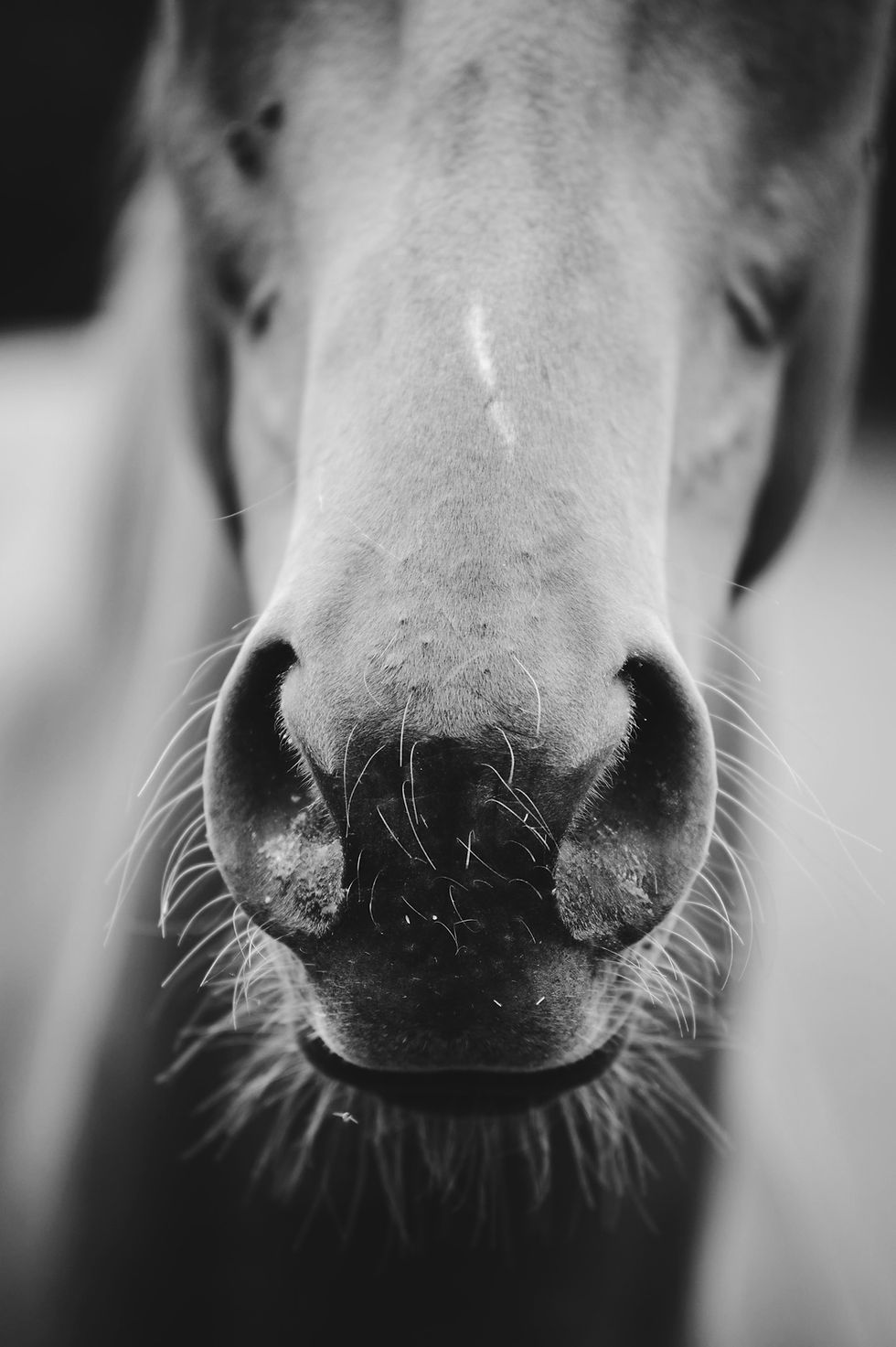Understanding Colic in Horses: Causes, Symptoms, and What to Do
- Ella Riley CertNCS (VCC), RVCCA

- Mar 24
- 4 min read
Colic is one of the most common and potentially life-threatening health issues horses face. As a horse owner, understanding colic and being able to recognise its symptoms can make the difference between a quick recovery and a serious medical emergency.
What is Colic?
Colic is a general term for abdominal pain, and in horses, it refers to any digestive distress or discomfort. While colic can vary in severity from mild discomfort to life-threatening, it always requires attention. The causes of colic can range from something as simple as a change in diet to more severe problems like twisted intestines or blockage.
Causes of Colic:
Sudden Changes in Diet: A sudden change in feed, such as introducing new hay, hard feed, or pasture, can upset your horse’s digestive system and lead to colic. Horses’ digestive tracts are sensitive, and abrupt changes can cause imbalances in gut bacteria.
Inadequate Water Intake: Dehydration can lead to impaction colic, where the intestines become dry and unable to pass food effectively. Lack of water intake, especially when horses are on dry hay or in hot weather, increases the risk of colic.
Overfeeding or Rich Feed: Overeating or feeding high amounts of rich, sugary feeds, especially after fasting or during a period of lower activity, can overwhelm a horse’s digestive system and lead to colic.
Intestinal Blockages or Impactions: If food material, foreign objects, or faeces get stuck in the intestines, it can block the normal flow of digestion, causing pain and discomfort.
Parasites: A heavy parasite load can damage the digestive tract, leading to colic symptoms. Regular deworming is essential to prevent this cause.
Stress or Anxiety: Horses are creatures of habit, and stress caused by changes in routine, travel, or new environments can trigger digestive upset and colic.
Gas Colic: When a horse’s intestines produce too much gas, often due to a sudden change in diet or fermentation in the gut, the distension can lead to painful bloating and discomfort.
Twisted Gut: A more severe form of colic occurs when a section of the intestine twists or becomes displaced. This can cut off blood flow to the affected area, causing tissue death, and is often a surgical emergency.
Symptoms of Colic
Restlessness and Rolling: Horses with colic can become restless, pace, paw at the ground, or attempt to roll. They may repeatedly get up and lie down as they try to find relief.
Kicking at the Belly: Horses in pain may kick at their abdomen, often as a response to the discomfort they are feeling.
Sweating: Colic pain can cause excessive sweating, especially in severe cases.
Reduced Appetite or Refusal to Eat: A horse experiencing colic may stop eating or drinking and refuse their feed or water.
Change in Gut Sounds: A veterinarian may be able to detect changes in gut sounds with a stethoscope. Horses with colic may have either reduced or excessive gut sounds.
Elevated Heart Rate and Respiratory Rate: A horse with colic may exhibit a faster-than-normal heart rate or shallow breathing, signalling distress or pain.
Lack of Normal Defecation: If your horse isn't passing manure, this could indicate an impaction or blockage.

What to Do if You Suspect Colic
Stay Calm: Staying calm will help you think clearly and avoid causing your horse further stress.
Assess the Severity: Take note of your horse’s behaviour.
Contact a Vet: Contact your vet immediately if you suspect colic. Your vet will conduct a thorough examination, possibly using tools like a nasogastric tube, rectal palpation, or an ultrasound to diagnose the cause of colic.
Limit Feed and Water: Don’t give your horse food or water until the vet has given instructions, especially if surgery is needed. Excessive food or water may worsen the condition.
Monitor the Horse’s Condition: Keep a close eye on your horse, and record any changes in behavior, appetite, or symptoms. This will help the vet make an accurate diagnosis.
Avoid Giving Medications Without Veterinary Advice: Pain medications like Flunixin or Buscopan are often given to relieve colic pain, but these should only be administered by a veterinarian.
Treatment and Management of Colic
Treatment of colic depends on the severity and cause. In some cases, the vet may recommend:
Observation and Supportive Care: For cases of mild colic, your vet may simply advise observation, ensuring the horse is hydrated and comfortable while the condition resolves on its own.
Pain Relief and Anti-Inflammatory Medications: Non-steroidal anti-inflammatory drugs (NSAIDs), like Flunixin, are commonly used to manage pain and reduce inflammation associated with colic.
Nasogastric Tubing: In cases of impaction or gas colic, your vet may use a nasogastric tube to relieve pressure or administer fluids and laxatives.
Surgery: If the colic is caused by a severe blockage that doesn’t resolve with other treatments, surgery may be necessary to correct the issue.
Hydration: If dehydration is an issue, intravenous fluids may be administered to help restore fluid balance.
Preventing Colic in Horses
While not all cases of colic are preventable, there are steps you can take to minimise the risk:
Feed a Consistent Diet: Avoid sudden changes in your horse’s diet, and ensure they have a balanced, high-fibre diet. Slowly transition to new feeds or fields over time.
Ensure Access to Clean Water: Make sure your horse always has access to fresh, clean water to prevent dehydration, which can contribute to colic.
Regular Deworming: Worms and parasites can lead to digestive issues. Regular deworming schedules can help keep your horse’s gut healthy.
Limit Stress: Try to minimize any sources of stress or anxiety, as stress can contribute to digestive upset.
Frequent Small Meals: If possible, feed smaller, more frequent meals rather than large ones to avoid overloading your horse’s digestive system.
Exercise and Turnout: Ensure your horse gets plenty of regular exercise and turnout. Movement helps keep the digestive system working smoothly.




Comments